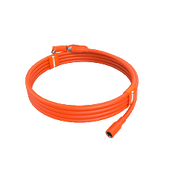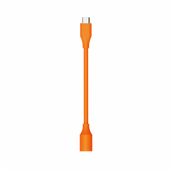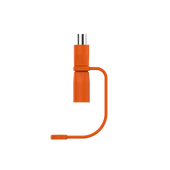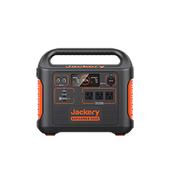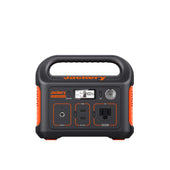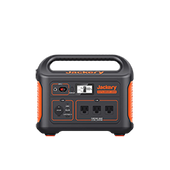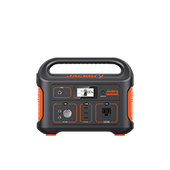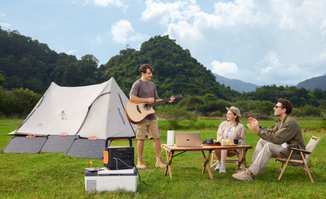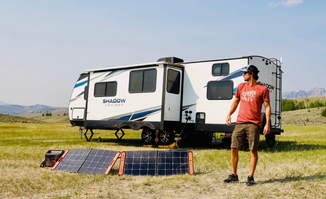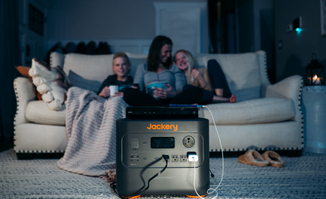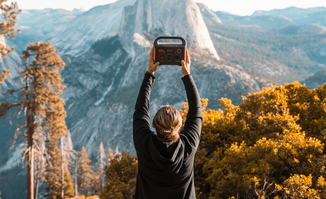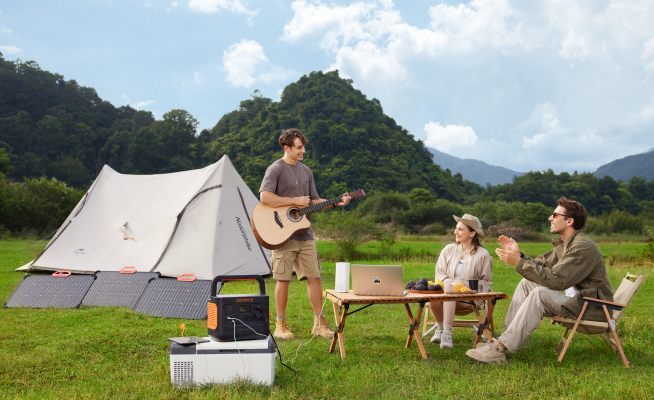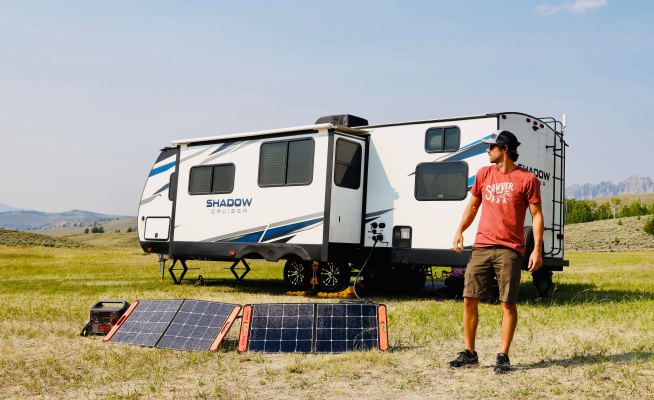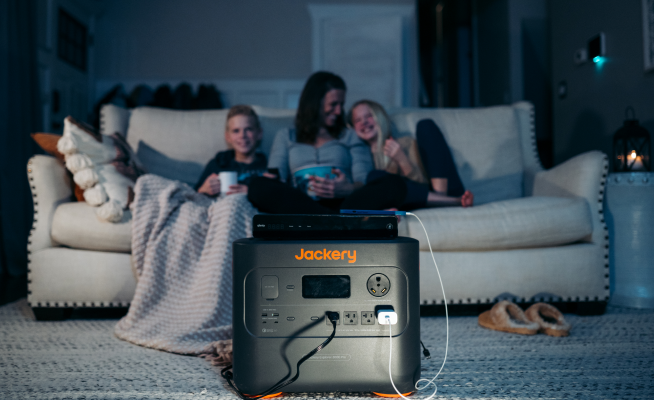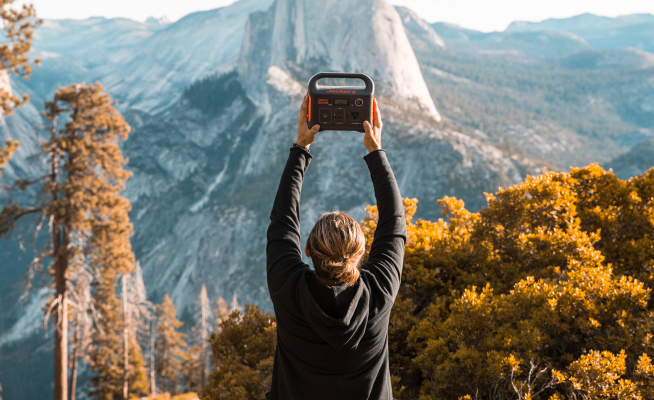Dry Camping 101 in Canada: Everything You Need to Know
RV travel and vacationing can be delightful. Campgrounds and resorts with full hookups are popular among full-time RVers and weekend travelers for their family-friendly amenities. If you are not accustomed to RV camping without utilities, dry camping may appear daunting.
There are numerous camping options, with or without an RV. In essence, dry camping is camping in your RV or trailer without utilities. That means no electricity, water, or sewage connections. Similarly, the majority of arid camping situations lack public Wi-Fi. You are alone with your vehicle on a plot of land that is likely in the midst of nowhere.
RV camping outside of a campground can be an enjoyable and liberating experience. This page describes dry camping, how to prepare for it, and its tips. We recommend Jackery Solar Generators as a backup power source for dry camping, particularly the Solar Generator 3000 Pro, which can power 99% of outdoor appliances with its 3024Wh capacity.
|
- Explorer 3000 Pro + SolarSaga 100W Solar Panels - 3024Wh capacity to power 99% of outdoor appliances - Pull rod and double wheels for easy carrying - Smart App Control - 5-Year long warranty |
What is Dry Camping
An RV or travel trailer can make cross-country travel an enjoyable experience. Visiting multiple campgrounds with complete hookups lets you enjoy your vacation comfortably. For those who need help locating a suitable campground, however, other places to reside need hookups for electricity, fresh water, and sewage systems. This is referred to as dry camping.
Dry camping is in an RV, van, or motorhome outside a traditional campground with no utilities. There is no cost if dry campers camp on public and private lands with the landowner's permission. This activity is sometimes called dispersed camping in national parks and forests.
Dry camping is not only a fun, safe, and pleasant activity, but it can also significantly reduce campground costs. Numerous locations, including national forests, BLM land, and parking lots, are ideal for camping without hookups.
Dry Camping VS. Boondocking
In the RVing community, boondocking is commonly used to refer to camping without utilities, although dry camping is a more accurate term. "Dry camping" and "boondocking" are frequently used synonymously. Both phrases refer to RV camping without electricity, water, or sewage connections.
Boondocking is a form of dry camping typically practiced in remote natural areas without infrastructure. It is sometimes referred to as "wild camping." Dry camping encompasses a broader range of locations, such as state park campgrounds, casino parking lots, retail parking lots, recreation areas, and even someone's driveway — a practice commonly known as mooch docking.

The Pros and Cons of Dry Camping
Typical campers may not comprehend why anyone would want to camp this way. Standard campgrounds provide excellent amenities such as flush restrooms, showers, picnic tables, camp stores, and possibly Wi-Fi. Off the grid, you are left to your own devices. There are, however, two aspects to every coin.
Pros of Dry Camping
Dry camping is only sometimes free but is typically more affordable than camping with complete hookups. Being independent of connections expands the number of camping locations. There are different opportunities, such as staying at breweries, farms, golf courses, or camping in a lakeside national forest campground with a long history.
- Close to Nature: You can appreciate the sunrise, the sunset, and how the moon illuminates the sky just enough to see your surroundings.
- Less Restriction:No designated campsites exist, so you can park wherever you have the most significant access to water or the best view.
- Private:If your ideal camping trip takes place in a pristine natural setting with only you and your camping companions, this may be your option.
- Free: On average, standard RV camping costs between $25 and $80 per night, with private and renowned campgrounds charging more.
Cons of Dry Camping
Regarding disadvantages, residing off the grid has the most significant drawback. Without connections, you must bring all of your water with you. It means not filling your wastewater containers. It also involves carrying additional fuel and cooking over an open flame.
Dry camping increases the effort required for cooking and laundering clothing. Typically, constant fire maintenance is needed. However, the extra effort may be what you appreciate most about dry camping.
- More Work Required: Sadly, you cannot park and camp wherever possible. Before selecting a location, you must familiarize yourself with all applicable regulations.
- Need Check Regulations:There are no designated camping areas, so you can park wherever you have the best water access or view.
- Take More Stuff:You will need an ample supply of water, an emergency pack, and off-grid power, all of which can add weight.
What to Pack for Dry Camping
There is nothing quite like a camping excursion in the wilderness, where you can get closer to nature and leave your worries behind.
An RV enhances your camping experience by allowing you to bring essentials from home, such as a comfortable bed, on your wild excursion. Dry camping is a great way to escape RV campground crowds and experience nature at its finest. While dry camping may seem intimidating to novices, nothing is impossible with some preparation and the right mindset.
- Jackery Solar Generator: It combines solar panels with a power station that can turn solar energy into electricity and use unlimited renewable energy.
- Extra Fuel: If you intend on winter dry camping, you will need propane to stay warm.
- Water Filter & Bladder: Fill your fresh water tank while parked.
- Outdoor Grill: grill or outdoor stove makes it possible to cook under the sky.
- Camping Chair & Table: You can relax outside your RV with this chair and table.
- Outdoor Lights: Dimmable LEDs will not deplete your batteries and can be installed.
- Emergency Kit: An absolute necessity when dry camping.
Electricity availability is one of the most significant challenges of dry camping. When parked at a campground, you can readily connect to shore power, but when camping in the wilderness, you must bring your power source. So bring extra. Ensure your RV's batteries are ultimately charged and carry a powerful solar generator.
As the foremost solar brand, Jackery is committed to manufacturing solar products of the highest quality, including solar generators, solar panels, and power stations. Jackery Solar Generators comprise SolarSaga solar panels and Explorer power stations, which convert and store solar energy for later use. When operating, the Jackery solar generators generate pure, clean energy that does not damage the environment.

Here, Jackery Solar Generator 3000 Pro is your best dry camping companion due to its high capacity, easy-to-carry design, and SMART App control. The 3024Wh solar generator has a massive 3000W of power and an extended battery life, enabling it to power 99% of outdoor appliances.
When operating it at temperatures between -10 and -20 degrees Celsius, the output power will automatically adjust based on the remaining battery capacity. Only 2.4 hours are required for a wall charger and 3 to 4 hours for solar charging. In addition, the App control permits mobile device monitoring of the power station's status, including remaining battery level, time, output and input power, etc.
|
Series |
Capacity |
Recharging Time |
Ports |
Appliances |
|
Solar Generator 3000 Pro |
3024Wh |
6*SolarSaga 200W 3-4H |
4*AC Output 2*USB-A Output 2*USB-C Output 1*Car Port 1*AC Input 2*DC Input |
Light(5W) 220H Cooler(21W) 122H Phone(29W) 101Charges Fan(700W) 3.7H Coffee Maker(1000W) 2.6H Outdoor Grill(1000W) 2.6H |
|
Wall Charging 2.4H |
||||
|
Car Charging 35H |
Watch the video to learn more about how to enjoy dry camping and the importance of our Jackery solar generator in your dry camping trips.
Dry Camping Tips
The first tip for successful dry camping is to evaluate your RV. It is essential to understand both the benefits and limitations of your RV when it comes to dry camping. For instance, your RV's girth is both an advantage and a disadvantage when dry camping. If you have a tiny pickup camper, the compact dimension allows you to camp virtually anywhere.
Dry Camping Electricity Tips
When a campsite's shore power is connected, both 120-volt and 12-volt power are available. In other words, you may utilize all your appliances at any time. However, 12-volt power is likely your only option when off the grid. This prohibits the use of the microwave, air conditioner, etc. If it must be plugged in, it will only function if you can access a 120-volt system.
Solar power is one of the best methods to increase your electrical capacity. This form of energy relies on the sun to charge batteries and provide electricity. It requires little maintenance, has no moving elements, and makes no noise. There are more cost-effective options than this, but after the initial investment, you will have access to free electricity whenever the sun is shining.
Jackery solar generators vary in size and capacity (from 3024Wh to 167Wh), so you can select one based on your requirements. They support multiple recharging methods, including solar panels, wall outlets, and carports. In addition, the pass-through charging function permits simultaneous charging of appliances and the generator. Our solar generator can be transported anywhere, regardless of the campsite or RV.

Dry Camping Water Tips
The most essential item for a dry camper is water. Being frugal with your potable water will allow you to spend more time outdoors. Additionally, it will delay the rate at which your gray water tank fills.
Be careful to arrive at a dry camping site with a full fresh water tank. Plan ahead and never presume your campsite or Harvest Hosts location will have a water-filling station. Additionally, you will need to conserve water throughout your arid camping trip. Your level of caution will vary, of course, based on the capacity of your fresh water supply and the length of time you want to spend dry camping.
In addition to conserving water, you can increase your fresh water capacity by carrying jerry jugs and bladders that you can empty into your fresh water tank when it gets low.
Grey Tank: Grey Water is wastewater from your toilets and showers. The faster your gray water tank fills, the more water you use for bathing, tooth brushing, hand washing, and dishes. Gray water conservation is equally as essential as freshwater conservation.
Black Tank: This tank is typically the smallest of the RV's tanks and is filled exclusively by waste from the toilet. The same dump stations can be used for both black and grey containers. Ensure to arrive at a dry camping location with an empty black tank and monitor tank levels throughout your stay.
Dry Camping Trash Tips
Garbage is the final utility to bear in mind. You will not have access to a dumpster while dry camping; you must locate an alternative means of waste disposal. Many gas stations permit clients to discard their trash while refueling.
Similarly, some grocery stores do not object if you discard a trash bag while purchasing groceries. When disposing of garbage, be courteous and request permission.
Dry Camping FAQs
The following shows the frequently asked questions about dry camping:
1. Is dry camping safe?
If you know your requirements and surroundings, dry camping can be perfectly safe.
To dry camp safely, you must have sufficient water, a way to remain warm or cool if the ambient temperature is dangerously high, and anything else you may require for self-care, such as adequate food and medications. Awareness of one's environment is more critical when dry camping is far from populated areas.
2. What size of solar generator do I need for my dry camping?
Taking a solar generator in your dry camping is essential, as it will power your appliances and allow you to communicate with others in an emergency. Jackery Solar Generators are renowned for their resilience, portability, and power. When it comes to solar energy, you must determine the magnitude of the required solar system.
First, determine the electrical requirements of each appliance and then match them with the appropriate solar generator size. The capacities of the Jackery solar generators range from 3024Wh to 240Wh. Here is the formula to calculate how long it will take the Jackery solar generator to charge your dry camping equipment:
Working time = solar generator capacity*0.85 / your device's operating wattage
For instance, if you charge your light (5 Watts) with a Jackery Solar Generator 3000 Pro (3024Wh capacity), it will operate for 220 hours (3024Wh*0.85/5W).
3. Where can I go dry camping?
There are numerous locations suitable for dry camping. You can dry camp at a state or national park campground with no hookups or at a commercial campground.
Dry camping is permitted on thousands of acres of public land, primarily in national forests, Bureau of Land Management lands, and Army Corps of Engineers holdings. The U.S. Forest Service publishes maps indicating where it is permissible to drive off-road and camp, but national parks rarely allow dry campers to go into the backcountry.
RVs can stop at several truck stops, highway rest areas, and big-box stores, but overnight accommodations are prohibited where indicated. Private property is an option for dry camping with the owner's permission.
Final Thoughts
Dry camping may appear intimidating and challenging if you've never done it. Most campers, however, find it extremely rewarding to forego hookups in exchange for the chance to spend the night in stunning national forest locations, occasional convenient lots, and gorgeous dispersed camping areas.
This is something that every camper can do if their RV is self-sufficient. Learning how to live in an RV without hookups is the ideal method to escape from it all and gain knowledge of your RV's systems. Moreover, Jackery solar generators may be your best dry camping companion due to their high capacity, portability, and durability.
Disclaimer:
The runtime mentioned for appliances powered by Jackery is for reference only. Actual runtime may vary under different conditions. Please refer to real-world performance for accurate results.







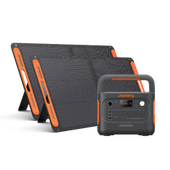



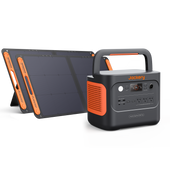

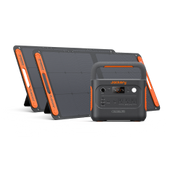
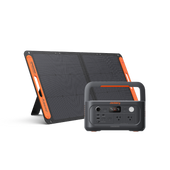
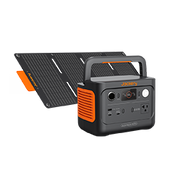

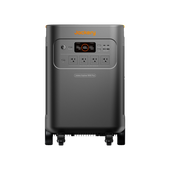

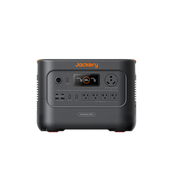
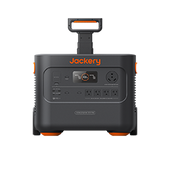
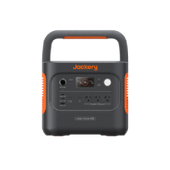
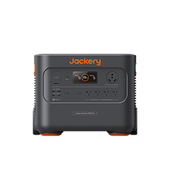

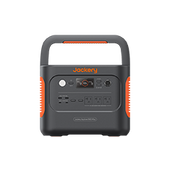
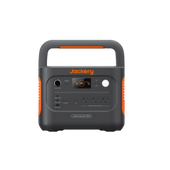
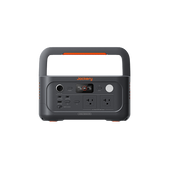

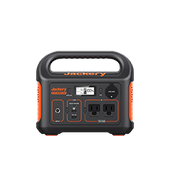
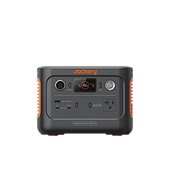

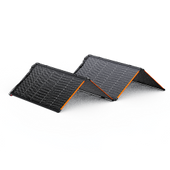
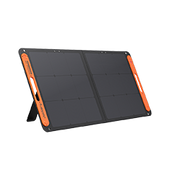


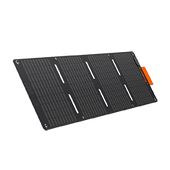

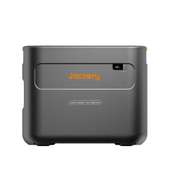
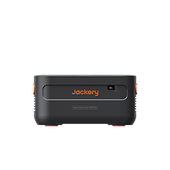
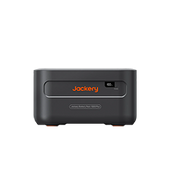
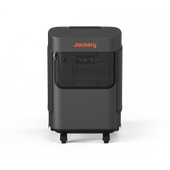
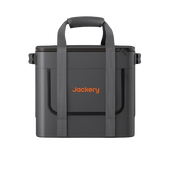
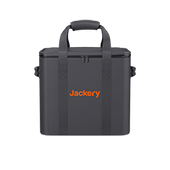
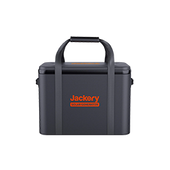
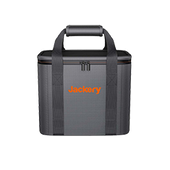
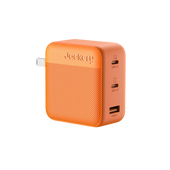
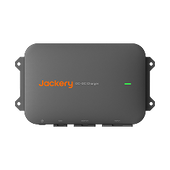
![[Add-on] Jackery Manual Transfer Switch for Explorer 5000 Plus](http://ca.jackery.com/cdn/shop/files/add-on-jackery-manual-transfer-switch-for-5000-plus-240V.webp?v=1757043692&width=170)
